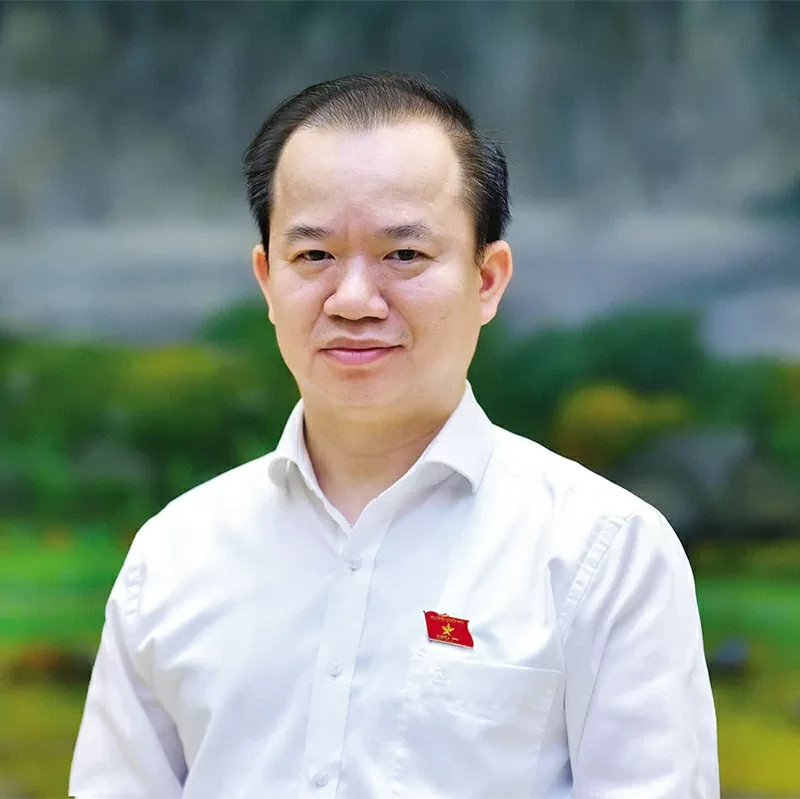 |
| National Assembly Deputy Bui Hoai Son said that building a systematic, long-term and visionary foreign cultural strategy has become an urgent requirement. (Source: Quochoi) |
Building a systematic, long-term foreign cultural strategy
Entering a new era, an era of global connectivity, digital transformation, artificial intelligence and increasingly fierce competition for value, Vietnam's foreign affairs culture is facing great opportunities but also many challenges. Integration is no longer a story of each trade agreement, each business trip, but has become a continuous flow of images, voices and identities.
In that flow, soft power is no longer an option, but a prerequisite for national positioning. And culture, as an inseparable part of modern diplomatic strategy, is expected to become the “new frontier” of Vietnam’s influence on the world map.
We live in a world where power is not measured by the number of weapons or the size of GDP, but by the level of influence in the international community's consciousness. A dish that goes viral on social media, a hit song on digital platforms, an internationally awarded film, a successful festival can all contribute to enhancing a country's prestige and image.
In that environment, each country is not only a political entity, but also a “brand” competing in terms of emotions, attractiveness and the ability to build trust. For Vietnam – a country with a rich culture, a deep history and a humanistic spirit, this is an unprecedented opportunity to affirm its position in a gentle yet resilient way.
However, opportunities come with challenges. Globalization and digital technology open up new spaces for culture, but also increase the risk of assimilation, adulteration, and even having their image “shaped” by inaccurate perspectives from outside. Many countries have paid a high price for neglecting the cultural front in their foreign policy strategies, losing their identity or being hidden in the noise of international media. This is a warning for Vietnam: if it does not proactively create and tell its story to the world, someone else will tell it for it, and that story may not be true.
Therefore, building a systematic, long-term and visionary foreign cultural strategy has become an urgent requirement. Not just stopping at reception events or art exchanges, foreign cultural affairs need to be invested as a national policy with institutions, resources, databases, professional human resources and a global vision. Vietnam can completely learn from successful models in the world such as France with its global French Institutes, Korea with its Hallyu strategy (cultural wave), Japan with its Cool Japan campaign, or China with its Confucius Institute network to build a soft power ecosystem with the Vietnamese brand.
The most important thing is to spread the cultural power from within, so that each citizen becomes a cultural subject, each organization is a fulcrum for spreading, each locality is an "identification card" of the nation. Promotional activities need to be closely linked to life, need to empower and encourage creativity from the community, need to promote the role of overseas Vietnamese, artists, businessmen, intellectuals, and youth - those who are directly creating the image of Vietnam in the eyes of friends around the world. That is not only the story of the State, but the story of the entire nation on the journey of deeper and more confident integration.
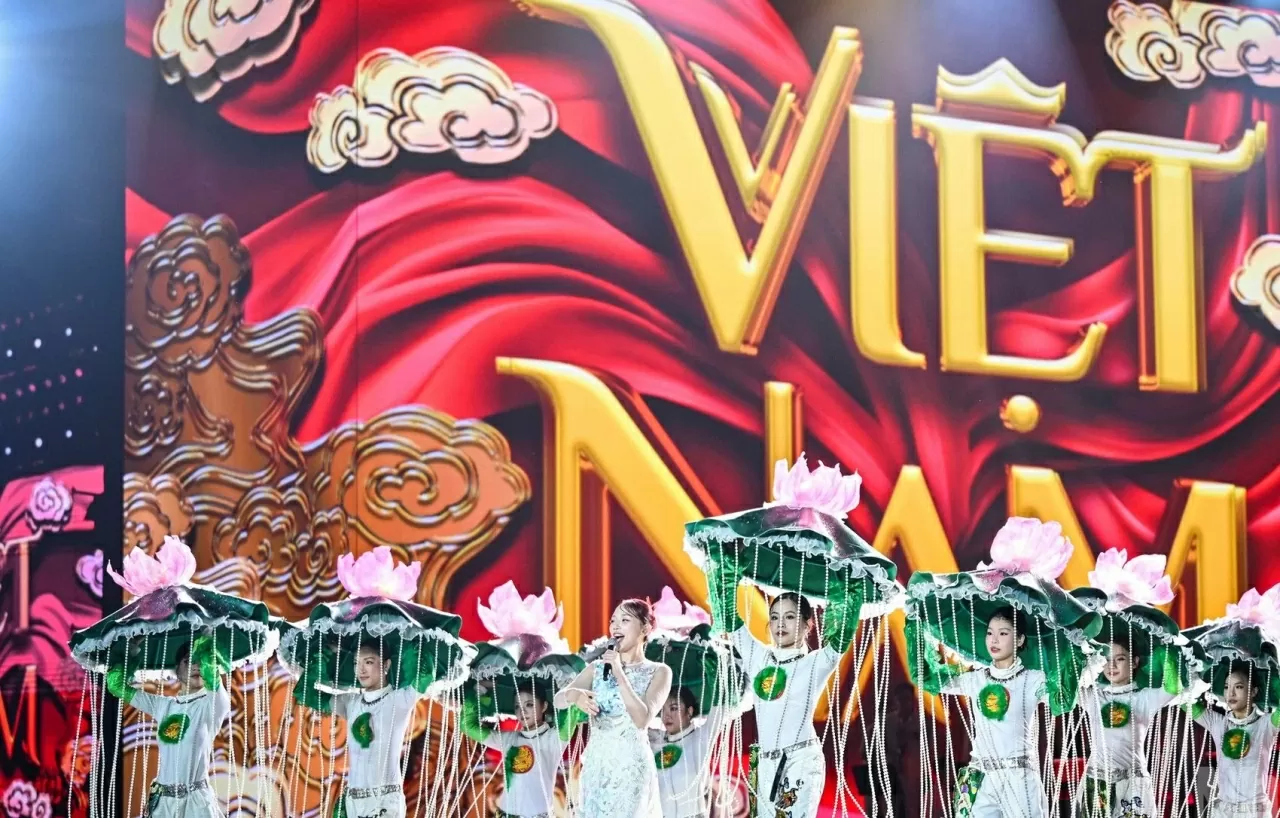 |
| The national concert "Fatherland in the Heart" left unforgettable echoes in the hearts of the audience. (Photo: Thanh Dat) |
And to ensure that these efforts are legally and institutionally guaranteed, it is time for Vietnam to perfect the legal system related to cultural diplomacy. Major policies such as Resolution 36-NQ/TW on work with overseas Vietnamese, Directive 25-CT/TW on promoting and elevating multilateral diplomacy, and Resolution 59-NQ/TW on comprehensive international integration are necessary steps to institutionalize the role of culture in foreign policy. Along with that is the promotion of the cultural industry as a new driving force, where cinema, music, fashion, tourism, design, etc. are both economic products and soft tools for diplomacy and national promotion.
Integrating but not assimilating is not just a slogan, but a principle of action. Vietnam does not aim to become “a pleasant copy” in the eyes of the world, but affirms itself with its own values: a resilient yet tolerant nation, creative yet elegant, friendly yet profound. In today’s world, when power is no longer just the ability to command, but the ability to inspire, culture is the shortest path for Vietnam to go the farthest.
Soft power - the new source of position and force
80 years after the August Revolution and the historic National Day of September 2, we look back on our national journey not only with pride in independence and sovereignty, but also with faith in an increasingly affirmed strength: Soft power originating from culture, distilled through the depth of history and spread by the mettle of a nation that knows who it is in the flow of global integration.
That power is not ostentatious but persistent, not noisy but penetrating, not imposing but convincing. It is a power that does not come from guns and bullets, but from symbols, values, images and emotions that Vietnam sows in the hearts of friends around the world.
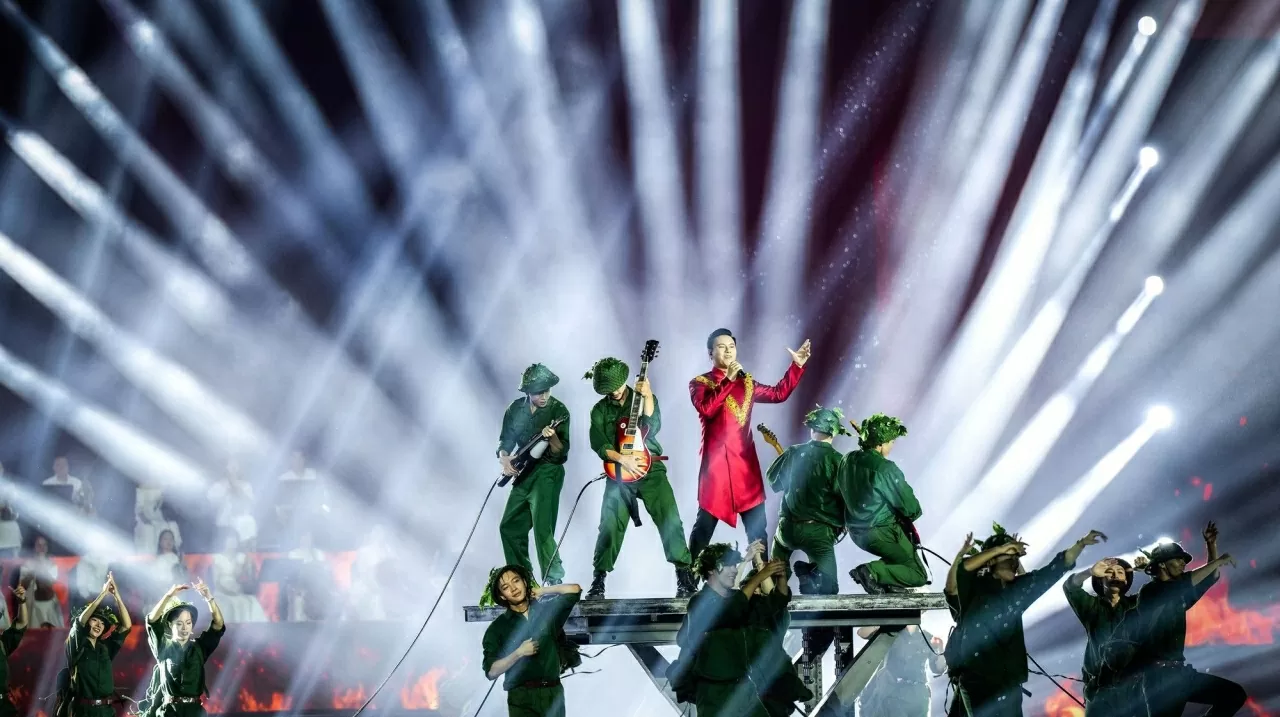 |
| One of the special art performances in the national concert program "Fatherland in the heart". (Photo: Thanh Dat) |
In that journey, culture is no longer a supporting factor, but has become a pillar in building the nation's position and power, the soul of modern diplomacy, a bridge connecting Vietnam with the world through emotions, empathy and admiration.
Culture helps Vietnam not only to be present but also to be loved, not only to appear but also to leave its mark, not only to follow but also to contribute to leading the common values of humanity. When a Vietnamese ao dai appears solemnly on the international stage, when a folk song with modern arrangements spreads on digital platforms, when a Vietnamese film wins an award at Cannes, or when a traditional dish delights global diners... These are the silent but sustainable milestones in the process of positioning the national image.
In the new context, when competition is not only in economic market share but also in "mind market share", investing in soft power, in foreign culture, in creative industries is not only the responsibility of the cultural or diplomatic sector, but a national strategy that requires the participation of the entire political system, the entire society and each citizen.
We need a long-term vision, a synchronous institutional system, an education system that nurtures identity, an open creative environment, and a press and media that is capable of telling attractive, modern Vietnamese stories that still retain the national spirit. We need to empower and arouse the role of the younger generation, of overseas Vietnamese, of artists, researchers, and entrepreneurs - those who can take Vietnam far with their own hearts and talents.
And above all, there needs to be consistency in thought, that culture is the foundation, the goal, the driving force and the source of the nation's soft power. President Ho Chi Minh once advised that to save and defend the country, we must first promote the strength of national culture. In the new era, to develop the country quickly and sustainably, to protect the Fatherland early and from afar by peaceful means, promoting soft power from culture is the long-term strategic path.
Today, Vietnam has stood firmly in the international arena as a reliable partner, a responsible nation, a dynamic economy and a rich culture, so every Vietnamese person today has the right to hope and act to bring Vietnamese culture further, deeper and more sustainably.
Culture will continue to be the guiding light for the nation, not only internally, but also in the journey of integration and spread so that Vietnam is not only strong in potential but also profound in influence, not only rich in economy but also famous in identity.
Source: https://baoquocte.vn/van-hoa-dinh-vi-hinh-anh-quoc-gia-325664.html



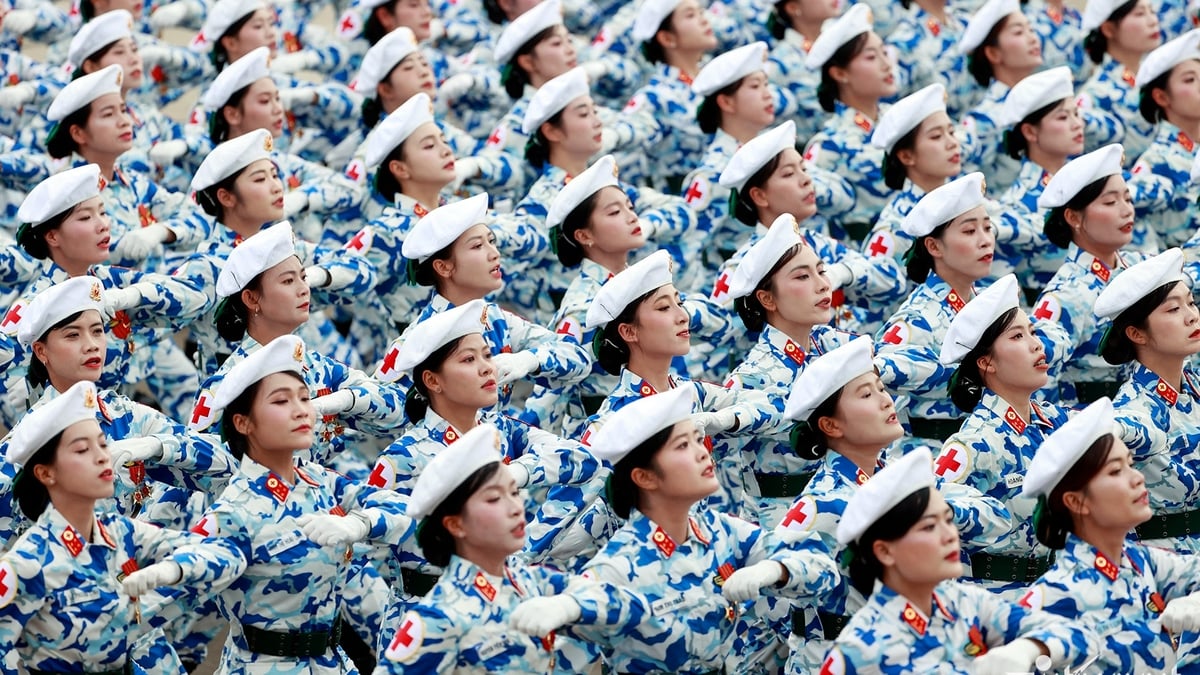
![[Photo] Prime Minister begins trip to attend SCO Summit 2025 in China](https://vphoto.vietnam.vn/thumb/1200x675/vietnam/resource/IMAGE/2025/8/31/054128fff4b94a42811f22b249388d4f)
![[Infographic] Traditional relations and special friendship between Vietnam and Cuba](https://vphoto.vietnam.vn/thumb/1200x675/vietnam/resource/IMAGE/2025/8/31/c4c2b14e48554227b4305c632fc740af)

![[Photo] First Secretary and President of Cuba begins State visit to Vietnam](https://vphoto.vietnam.vn/thumb/1200x675/vietnam/resource/IMAGE/2025/8/31/f169c1546ec74be7bf8ccf6801ee0c55)
![[Photo] Chairman of the National People's Congress of China Zhao Leji begins official visit to Vietnam](https://vphoto.vietnam.vn/thumb/1200x675/vietnam/resource/IMAGE/2025/8/31/fcfa5a4c54b245499a7992f9c6bf993a)
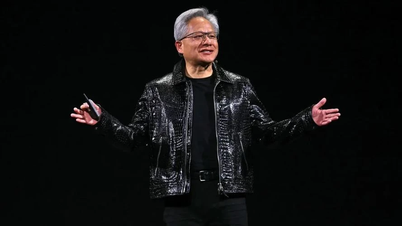

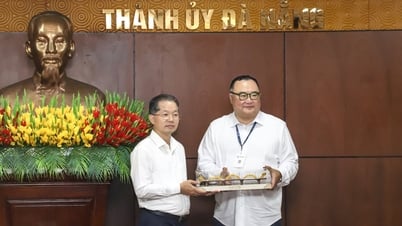



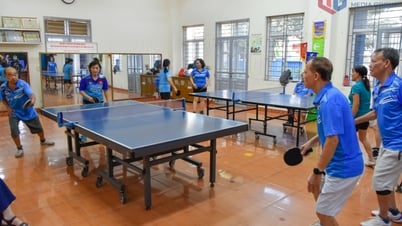

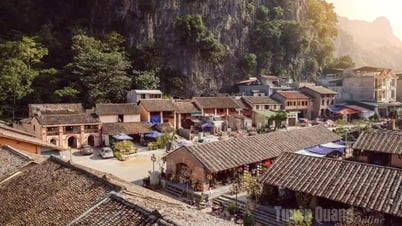

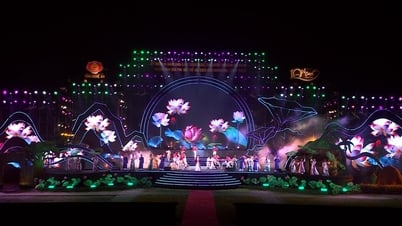

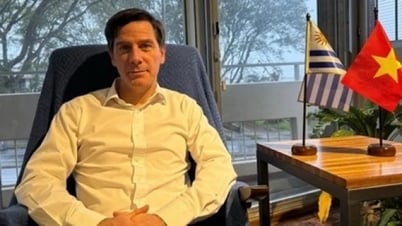
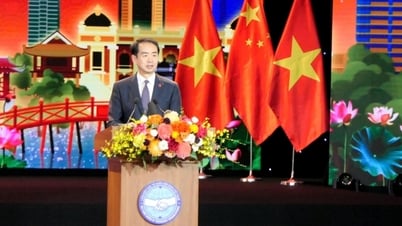
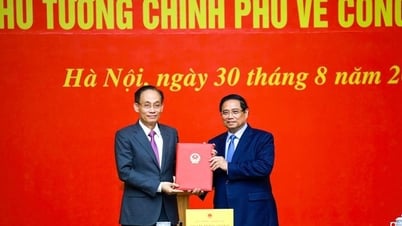

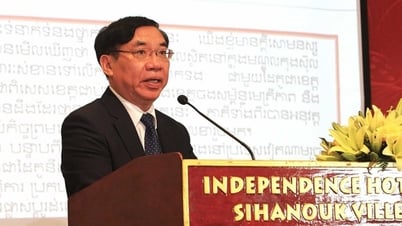
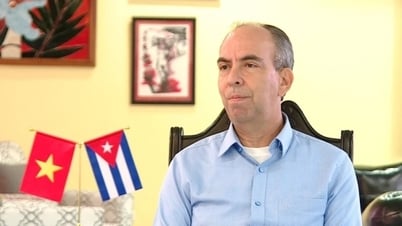
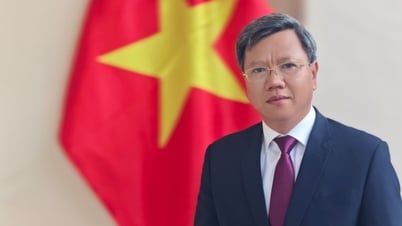




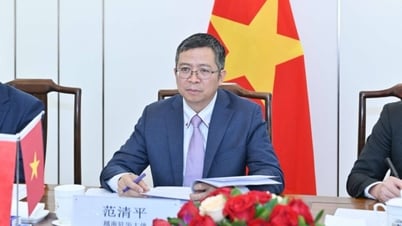
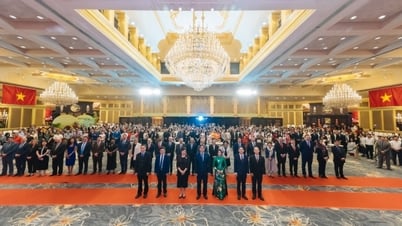
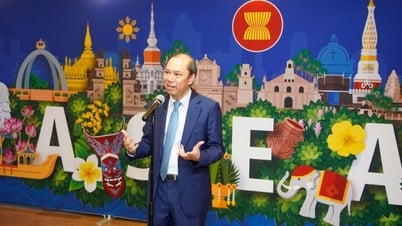

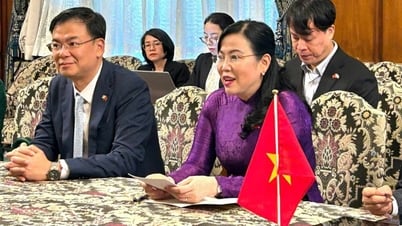
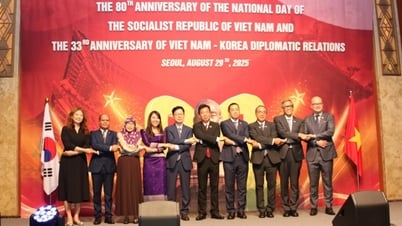


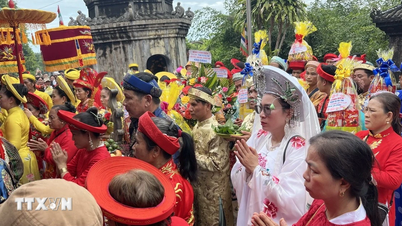
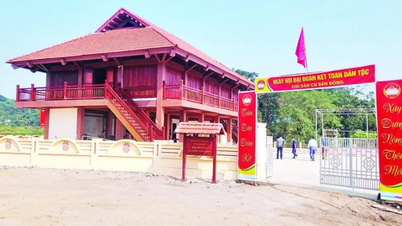








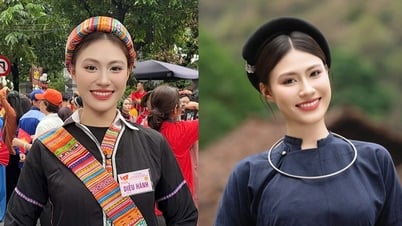
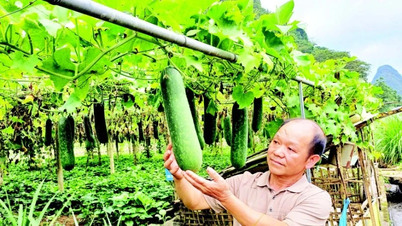
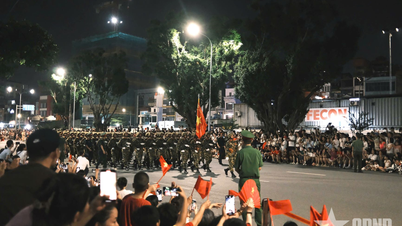

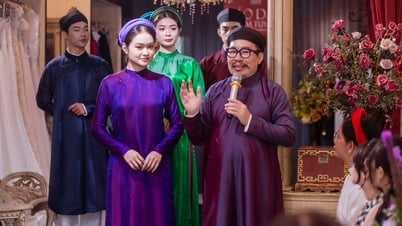




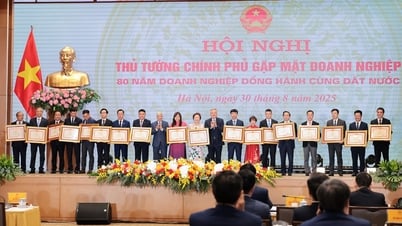
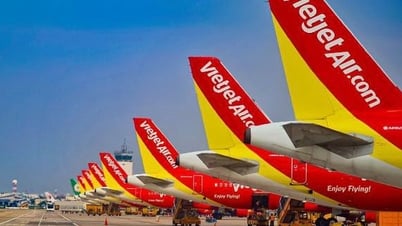




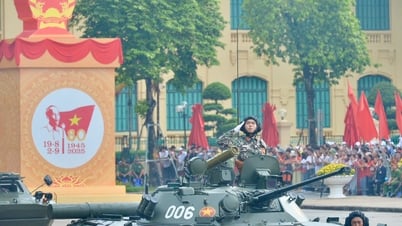









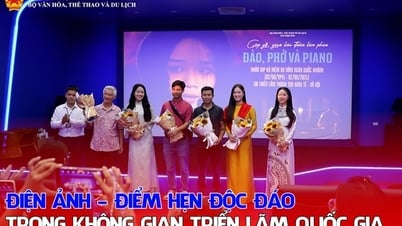
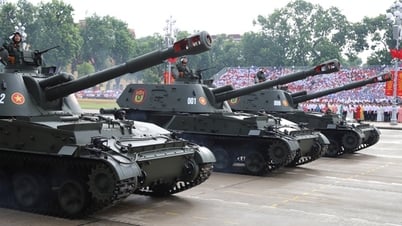

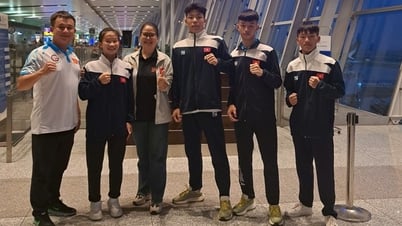
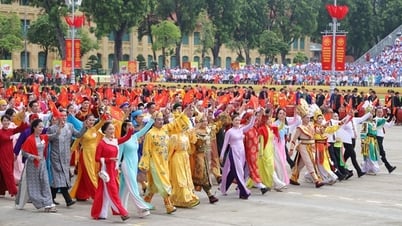
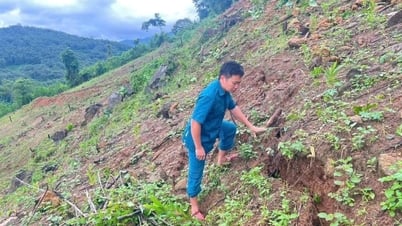
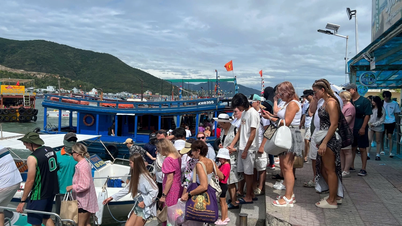

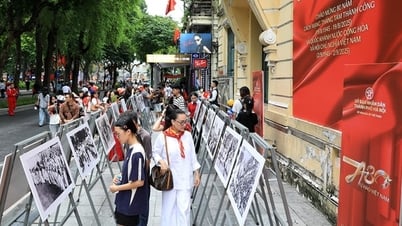

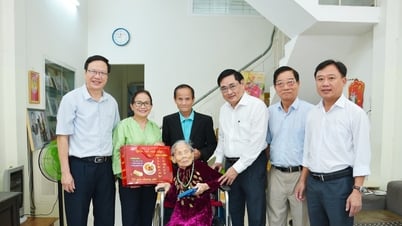
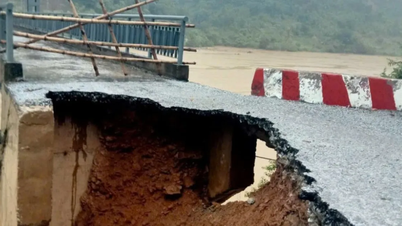

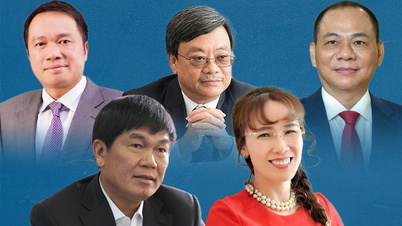

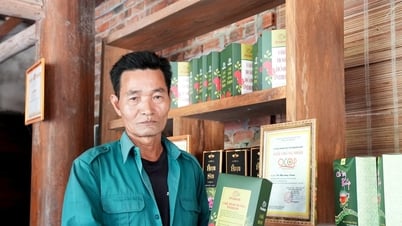
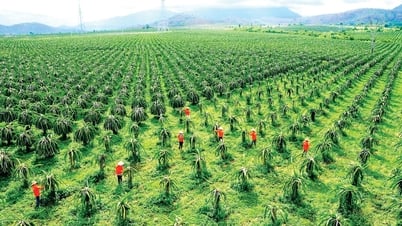




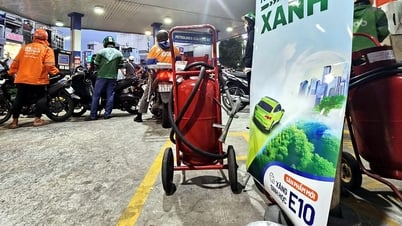

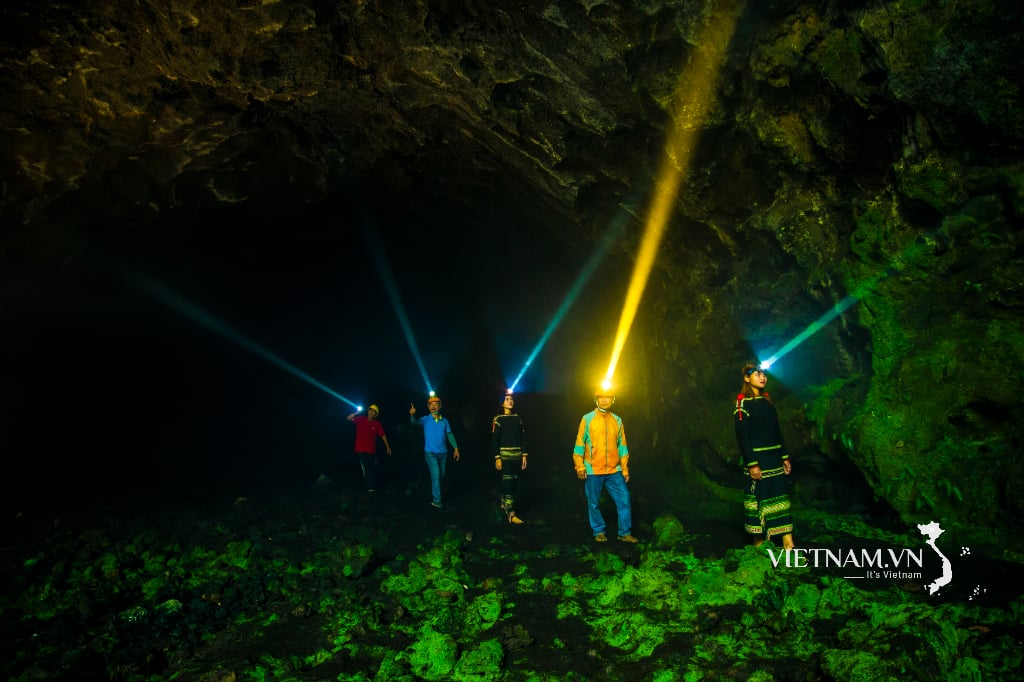



Comment (0)